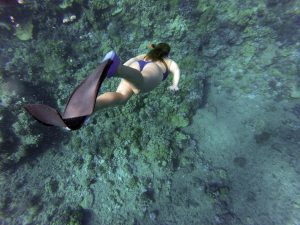Summer officially began last week and with it comes boating season! If you’re lucky enough to own a boat, have friends or family with a boat, or get the opportunity to rent one then you know the amazing feeling of being out on the water in the sunshine. If you truly want to the make the most of your experience make sure you have the things on this list.
Sunscreen
There’s nothing worse than a carefree day on the boat that turns into a painful night with red, burnt skin. Make sure you pack your sunscreen before you head out. According to the American Academy of Dermatology, you should choose a sunscreen with SPF 30 or higher. Apply the sunscreen at least 15 minutes before going outdoors as that is the amount of time it takes your skin to absorb the sunscreen. The rule of thumb is to reapply the sunscreen at least every two hours, but if you’re swimming make sure to apply a layer as soon as you get out of the water.
Water
We’re not telling you there’s no room for a few cold beers or margaritas, but it’s extremely important to make sure you’re hydrated while you’re out in the sun all day. There’s a good chance you’ll be sweating a lot so the average amount of water you should drink (eight cups) may be inadequate. Try to drink enough to prevent being thirsty in the first place.
Flotation Devices
It is required by Florida law for each person on your watercraft to have a personal flotation device. The risk of your boat capsizing and not having protection for all your passengers is not worth it.
Snacks
It’s no secret that being out in the sun can make you hungry. Some snacks we suggest are pre-made sandwiches, chips, water-rich fruits and veggies, trail mix, and granola bars. Try to avoid overly salty foods.
Call us today, 352-371-7977, if you need boat insurance, and have fun out there this summer!





